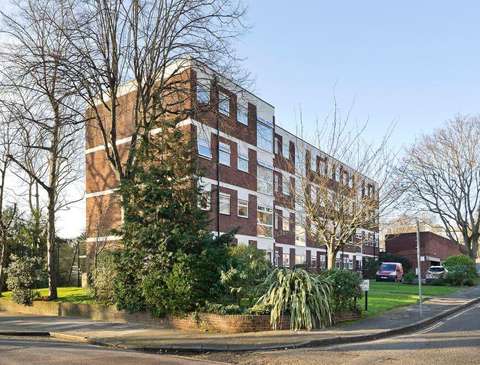Investing in Ex-Council Houses: A Comprehensive Guide by Fraser Bond
Introduction
Ex-council houses, also known as former council houses, have become an attractive investment option for many property investors. These properties, originally built and managed by local authorities, are often sold at competitive prices and offer potential for good rental yields and capital appreciation. Join Fraser Bond as we explore the benefits, considerations, and strategies for investing in ex-council houses.
What are Ex-Council Houses?
Ex-council houses are residential properties that were once owned and managed by local councils but have been sold to private individuals. These properties were often built in the mid-20th century and are typically located in well-established residential areas.
Benefits of Investing in Ex-Council Houses
1. Affordable Prices:
- Ex-council houses are generally more affordable than similar privately-built properties, making them accessible to a broader range of investors.
2. Robust Construction:
- These properties were built to high standards with durable materials, offering good structural integrity and longevity.
3. Potential for High Rental Yields:
- The lower purchase price relative to rental income can result in attractive rental yields, especially in high-demand areas.
4. Established Communities:
- Ex-council houses are often located in well-established neighborhoods with existing infrastructure, amenities, and community networks.
5. Opportunity for Capital Appreciation:
- With improvements and renovations, ex-council houses can increase in value, providing opportunities for capital appreciation.
Key Considerations When Investing in Ex-Council Houses
1. Location:
- Research the location thoroughly. Proximity to public transport, schools, shops, and employment hubs can enhance rental demand and property value.
2. Property Condition:
- Assess the condition of the property. Some ex-council houses may require renovation or modernization, which should be factored into the overall investment cost.
3. Leasehold Issues:
- Many ex-council properties are leasehold. Ensure you understand the terms of the lease, including ground rent and service charges.
4. Local Authority Restrictions:
- Check for any local authority restrictions or covenants that may affect property use or renovations.
5. Market Research:
- Conduct market research to understand rental demand, average rental prices, and property value trends in the area.
6. Financing:
- Securing financing for ex-council properties can sometimes be more challenging. Ensure you have a solid financing plan in place.
Example Investment Analysis
Scenario:
- An investor is considering purchasing an ex-council house in a suburban area for £180,000.
Rental Income:
- Monthly rent: £900
- Annual rent: £900 x 12 = £10,800
Costs:
- Mortgage (75% LTV, 3.5% interest rate): £567/month
- Maintenance and insurance: £100/month
- Ground rent and service charges: £50/month
Net Rental Income:
- Total monthly income: £900
- Total monthly costs: £567 + £100 + £50 = £717
- Net monthly income: £900 - £717 = £183
- Annual net income: £183 x 12 = £2,196
Capital Appreciation:
- Assuming a conservative appreciation rate of 2% per year:
- Value after 5 years: £180,000 x (1 + 0.02)^5 = £198,632
Total Return:
- Net rental income over 5 years: £2,196 x 5 = £10,980
- Capital appreciation over 5 years: £198,632 - £180,000 = £18,632
- Total return: £10,980 + £18,632 = £29,612
Tips for Successful Investment in Ex-Council Houses
1. Conduct Thorough Due Diligence:
- Investigate the property’s history, condition, and any legal or financial obligations associated with it.
2. Budget for Renovations:
- Allocate funds for potential renovations and improvements to make the property more appealing to tenants and increase its value.
3. Work with Professionals:
- Engage experienced estate agents, solicitors, and surveyors to assist with the purchase and management of the property.
4. Understand Leasehold Terms:
- If the property is leasehold, thoroughly review the lease agreement and understand your responsibilities and costs.
5. Consider Long-Term Potential:
- Focus on areas with strong long-term growth potential and stable rental demand to maximize your investment returns.
6. Monitor Market Trends:
- Stay informed about market trends and economic factors that could impact property values and rental demand.
Why Choose Fraser Bond?
Expert Guidance:
- Our team provides expert advice on all aspects of property investment, helping you make informed decisions and maximize your returns.
Comprehensive Services:
- From property search and valuation to management and legal assistance, we offer a full range of services to support your investment journey.
In-Depth Knowledge:
- Our extensive knowledge of the UK property market ensures you receive the best guidance and insights.
Personalized Solutions:
- We offer tailored solutions to meet your specific needs and goals, ensuring the success of your investment in ex-council houses.
Conclusion
Ex-council houses offer a compelling investment opportunity with their affordable prices, robust construction, and potential for high rental yields and capital appreciation. By understanding the benefits, considerations, and strategies for investing in these properties, you can make informed decisions and achieve successful outcomes. Fraser Bond is here to provide expert guidance and comprehensive services to support you in your property investment journey. Contact us today to learn more about how we can assist you in investing in ex-council houses.



